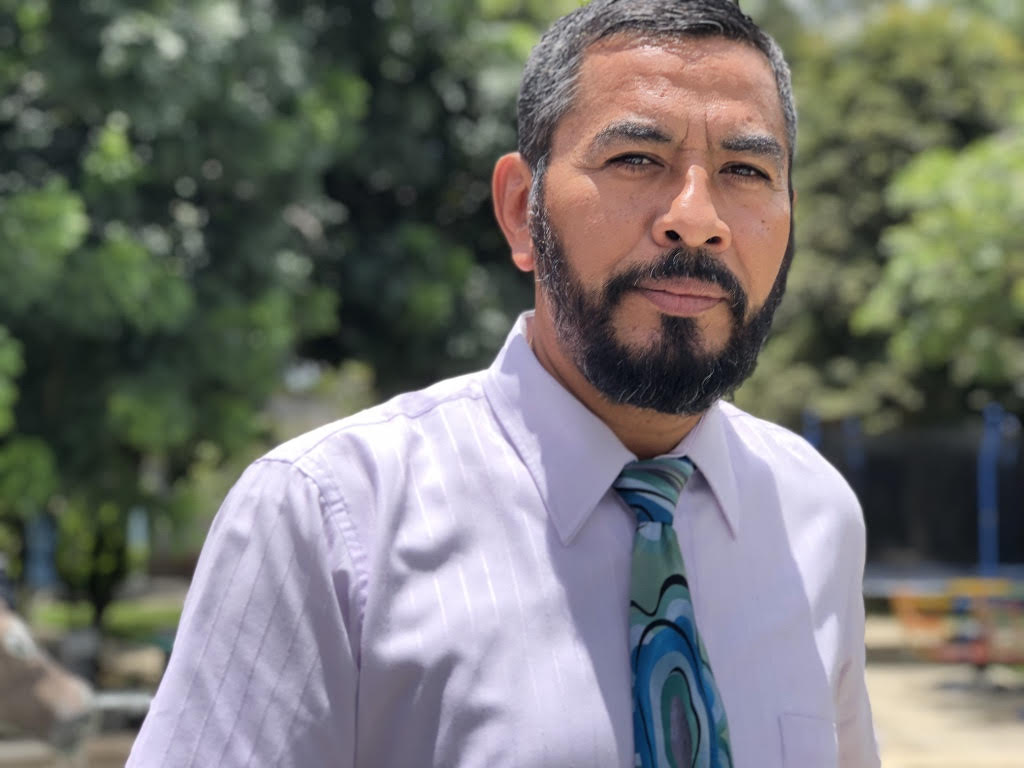About The Missionary
APATZINGÁN, A DANGEROUS CITY
Apatzingán is located in west-central Mexico with a population of approximately 104,469. The city is the fourth largest in the Mexican state of Michoacán. As with the majority of the rest of Mexico, Catholicism is the dominant religion of the area. Recently, a strong presence of notorious, powerful, and wealthy drug trafficking cartels has been making itself known in the city. The citizens of the city are living in perpetual fear because of the cartels and the related violence, extortion, and kidnappings.
A NEW CREATURE IN CHRIST
In April 1967, Salvador was born to a Catholic family in Michoacán, Mexico. In September of 1990, he and his wife Maria immigrated to the USA where he later accepted Christ as his Savior. They began attending the Good News Fundamental Baptist Church of San Carlos, CA, (which is also their sending church) where they began to experience the difference between the salvation they had in Christ and the emptiness of religion. During the time they were attending that church, God gave them three children. All three of their now grown children have been involved in various ways in the ministry. In July 2004, they returned to Mexico to study at the Ebenezer Practical Bible Institute in Hermosillo, Sonora, Mexico. At the Institute, Salvador majored in Bible from 2004 to 2008. During that time, many biblical principles were learned which have helped them in their ministry in Apatzingán. Today, Salvador leads a church planting work in this needy region of Mexico.
Latest Prayer Letter
Project Giving Opportunities
Church Building
- Need: $45,000Updates From The Field
Sorry, there are no updates at this time.
About The Field:
Mexico, a country in North America, grapples with a variety of economic and social challenges, influenced by historical and contemporary factors, as well as the rich cultural and religious heritage in the region.
Economically, Mexico is characterized by a diverse economy, including agriculture, manufacturing, and services. However, the country faces challenges such as income inequality, high levels of informality in the labor market, and issues related to corruption and governance. The dependence on a few key industries, such as automotive and oil, leaves the economy vulnerable to external shocks.
Social challenges in Mexico are multifaceted. Access to quality education remains unequal, with disparities in educational resources and infrastructure between urban and rural areas. Healthcare accessibility and affordability are concerns, leading to disparities in health outcomes, particularly in marginalized communities.
Poverty affects a significant portion of Mexico’s population, contributing to social disparities and impacting living conditions, especially for those in rural and indigenous communities.
Mexico’s historical and cultural richness is evident in its religious landscape. The predominant faith is Roman Catholicism, deeply rooted in the country’s history since Spanish colonization. This historical connection between religion and culture has influenced various aspects of Mexican society, including traditions, art, and social values.
However, the influence of religion also intersects with social challenges. Debates over the role of the Catholic Church in public life, issues related to religious freedom, and the Church’s stance on social and political matters contribute to the complex dynamics within Mexican society.
